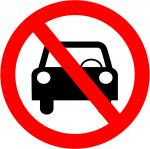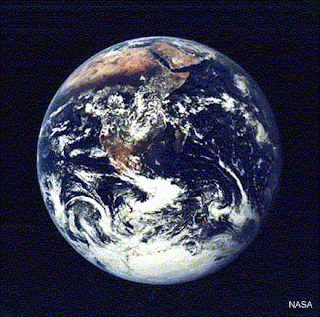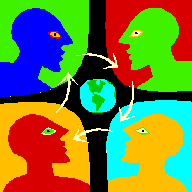 Last May (2009) our second car threw a timing belt which sucked into the engine and effectively destroyed the vehicle. Although we are a family of 5, with one student in school 25 miles away due to custody issues, we have never replaced that car.
Last May (2009) our second car threw a timing belt which sucked into the engine and effectively destroyed the vehicle. Although we are a family of 5, with one student in school 25 miles away due to custody issues, we have never replaced that car.
Kermit was wrong: It is "easy being green!" If we make ourselves aware that we have choices, many earth-friendly alternatives require very little effort and give big payoffs. Here is one household's experiment in going Green, the easy way.
 Last May (2009) our second car threw a timing belt which sucked into the engine and effectively destroyed the vehicle. Although we are a family of 5, with one student in school 25 miles away due to custody issues, we have never replaced that car.
Last May (2009) our second car threw a timing belt which sucked into the engine and effectively destroyed the vehicle. Although we are a family of 5, with one student in school 25 miles away due to custody issues, we have never replaced that car.
 UPDATE: Ended the bike-year (on the solstice) having driven 904 bike miles that I didn't ride in the car. See the prior post for the details on how you can become less of a car-rider . . . and for links to the Red Tag Your Car series.
UPDATE: Ended the bike-year (on the solstice) having driven 904 bike miles that I didn't ride in the car. See the prior post for the details on how you can become less of a car-rider . . . and for links to the Red Tag Your Car series. It is interesting that last week, on Bike to Work Day, May 14, I logged an even 800 miles on my bike over the preceding 11 months. (I will probably hit 900 by the end of the school year, and may make an effort to hit the symbolic 1000 mile point.)
It is interesting that last week, on Bike to Work Day, May 14, I logged an even 800 miles on my bike over the preceding 11 months. (I will probably hit 900 by the end of the school year, and may make an effort to hit the symbolic 1000 mile point.) At this time (see item #2) I tend to view the need to ride in a car as a failure; of errand route planning, of ability to find a truly local option, of trying to squeeze too much to fast into a life on the road.
At this time (see item #2) I tend to view the need to ride in a car as a failure; of errand route planning, of ability to find a truly local option, of trying to squeeze too much to fast into a life on the road.
For me, Cooking with Care means using both sustainable and healthy cooking methods. The PTF  folks make use of a solar oven regularly -- which is beyond my personal commitment level. But we choose to use natural gas for our stove and oven, since it is a more efficient and less "carboniferous" (lower CO2) method for cooking than an electric range. If we ever had a surfeit of solar electricity on our hands it might make sense to use an electric range; but we only do 70-90% solar annually, so not yet.
folks make use of a solar oven regularly -- which is beyond my personal commitment level. But we choose to use natural gas for our stove and oven, since it is a more efficient and less "carboniferous" (lower CO2) method for cooking than an electric range. If we ever had a surfeit of solar electricity on our hands it might make sense to use an electric range; but we only do 70-90% solar annually, so not yet.
I also like the common sense reminder Don't Waste It (food); that's a no brainer, of course, since trashing edible food costs the local household budget needlessly, but it also affects the larger ecosystem. Where a community or country is particularly profligate, the waste can really add up to a level that moves food production into a non-sustainable place.
The other half of waste, however -- at least in my mind -- comes down to what one does with the parts of the food one does not eat. Trimmings from vegetable preparation, for example. Th e potato that went soft in the back of the bin. Even the green beans which no threat or entreaty could convince the three-year-old to eat. Can we avoid wasting them? You bet!
e potato that went soft in the back of the bin. Even the green beans which no threat or entreaty could convince the three-year-old to eat. Can we avoid wasting them? You bet!
A small bin on the counter and simple compost bin in the yard or on an apartment patio (yes they do have a sealed compost bin for just such a situation) is a great way to reduce landfill mass and avoid wasting the excellent fertilizer and soil builders one might otherwise throw away. For a longer rant on composting, click here.
The final concept -- Homegrown is Best -- is both one of the easiest to achieve at some level and hardest to achieve at a significant level. But it is an excellent aspirational goal -- especially  since you know that the food is organic, definitely local and fair trade. More interestingly, I have found I am far less likely to be wasteful with food that I have grown. I know how long it took to get that bowl of broccoli or pan of fried potatoes, and you will see me turn positively miserly when it comes to using up food I have invested months of time in!
since you know that the food is organic, definitely local and fair trade. More interestingly, I have found I am far less likely to be wasteful with food that I have grown. I know how long it took to get that bowl of broccoli or pan of fried potatoes, and you will see me turn positively miserly when it comes to using up food I have invested months of time in!


NOVEMBER 28, 2007

 Back in February 2007 I mentioned something I called the "Would-Buts" that prevent us from talking sustainable action or making livable choices (See "Get off Your Would-But and DO Something"); in the "great minds think alike" catagory, we now have a list of "seven buts" that might stop you from making your hometown less noxious.
Back in February 2007 I mentioned something I called the "Would-Buts" that prevent us from talking sustainable action or making livable choices (See "Get off Your Would-But and DO Something"); in the "great minds think alike" catagory, we now have a list of "seven buts" that might stop you from making your hometown less noxious.
 I Would But . . .
I Would But . . .
 We’ll deal with these Top Ten Would-But excuses in future posts. For the moment it is enough to recognize a "would but" excuse for what it is – a temporary obstacle to be overcome. And once overcome, most of these would-buts seem terribly insubstantial.
We’ll deal with these Top Ten Would-But excuses in future posts. For the moment it is enough to recognize a "would but" excuse for what it is – a temporary obstacle to be overcome. And once overcome, most of these would-buts seem terribly insubstantial. It turns out, maybe the easiest way to be green is to change your city's culture so that the city government helps you do it.
It turns out, maybe the easiest way to be green is to change your city's culture so that the city government helps you do it.
In the City of Pasadena, there are also a number of commissions -- staffed by citizen volunteers, not politicians -- to which you can take your ideas and concerns.
These quasi-insiders can often translate your issue into terms that the local government can work with effectively. They can also become a champion of your issue, and came at the issue from the inside, at the same time you work on the outside.
Some recent examples: The City of Pasadena recently became signatory to a UN document setting goals for combating global warming; and after citizen input the City dropped efforts to extend coal generation contracts for the local electric utility. ("No new coal" is now the official city policy(!).)
Bring your city around on key issues, and help yourself -- and thousands of your neighbors -- to an easy, Green future!


